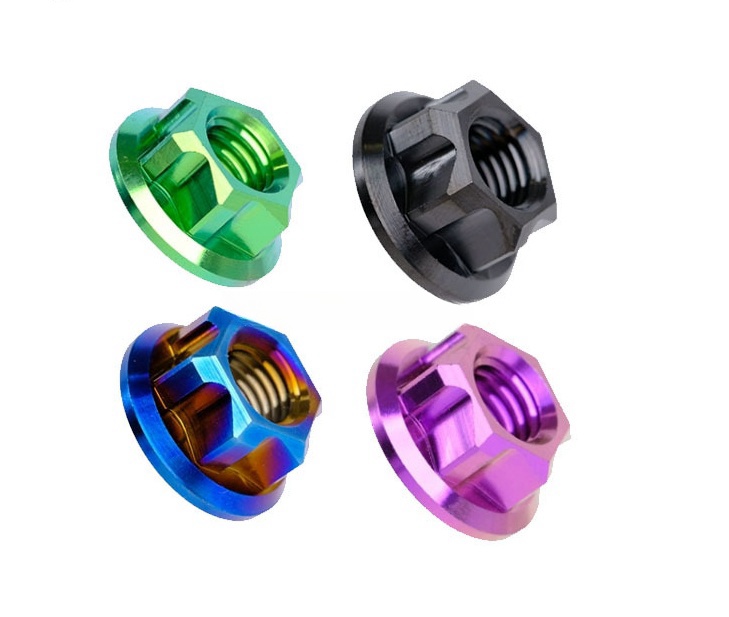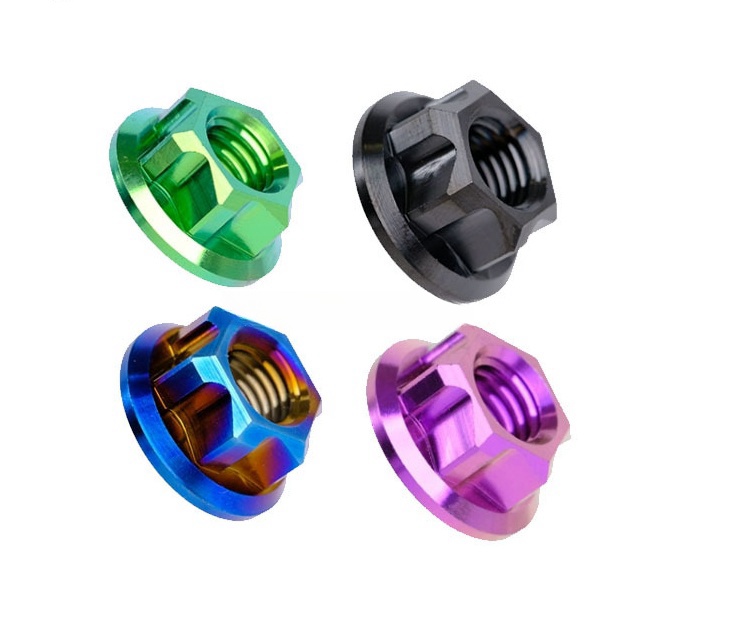
Titanium screws are a kind of titanium fasteners. What is titanium fastener? To put it simply, fasteners are titanium bolts, titanium screws, titanium studs, titanium nuts, titanium screws, titanium tapping screws, titanium washers, titanium rivets, titanium pins, titanium rings, titanium link pairs and fastener-assemblies, etc. 13 categories; Titanium fasteners, as an important universal basic parts, play a pivotal role in industry and are known as "industrial meters".
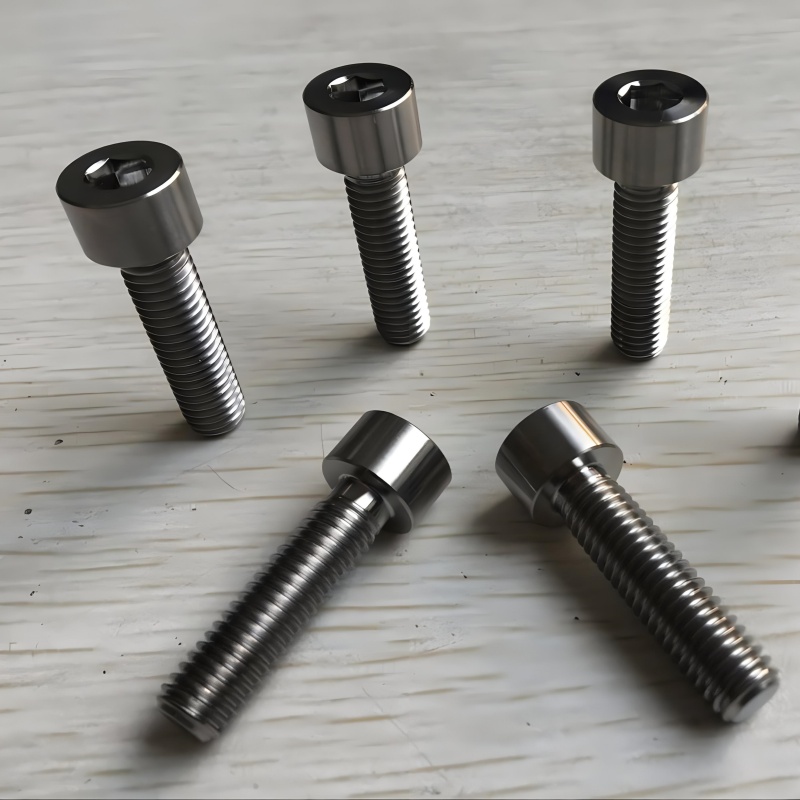
The application history of titanium fasteners can be traced back to the 1950s, and the United States took the lead in applying Ti-6Al-4V alloy bolts to B-52 bombers, which achieved significant weight reduction. The development history of titanium fasteners in China can be traced back to 1965, and the relevant units carried out titanium alloy rivets and application research work in the 1970s. With the development of time, titanium alloy fasteners have slowly entered the civilian market. China's executive standard is: GB/T 42159-2022(fasteners with titanium and titanium alloy bars and wires). However, titanium fasteners do not have a global unified standard, countries, regions have their own standards, the following will introduce some of the more common standards:
ASTM (American Society for Materials and Testing) is a guideline and standard for manufacturing, materials, production, and properties.
The ISO International Organization for Standardization is one of the bodies that sets global standards.
GB refers to the Chinese national standard.
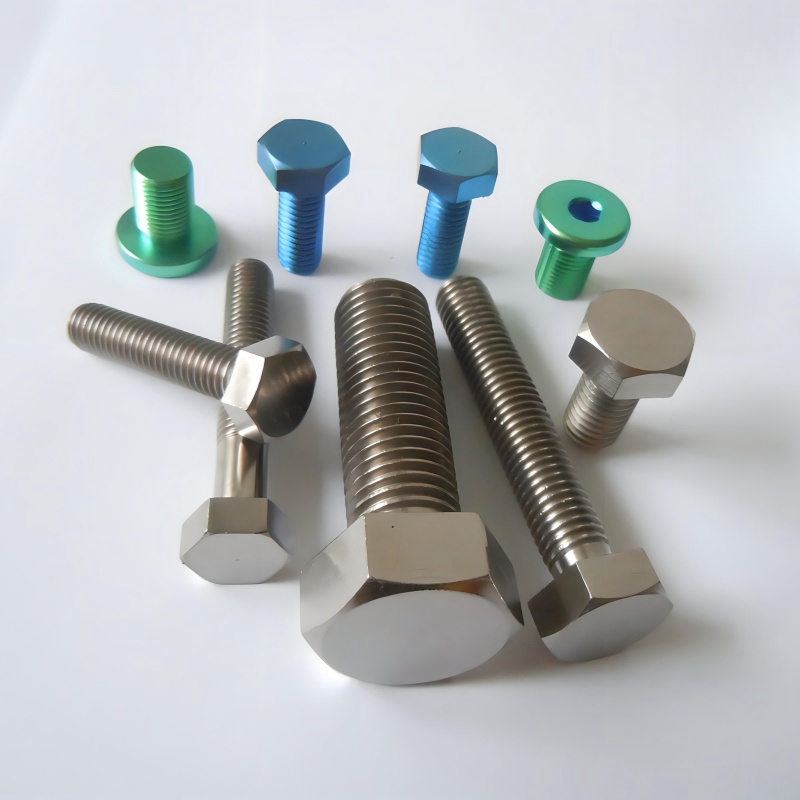
The application of titanium fasteners has the following advantages: (1) low density. The density of titanium alloy is significantly less than the density of steel material, so titanium alloy fasteners are lighter than steel fastener materials. (2) High specific strength. Titanium alloy is a metal material with high specific strength among common metal materials. (3) High melting point. The melting point of titanium alloy is significantly higher than that of steel material, so the heat resistance of titanium alloy fasteners is better than that of steel fasteners. (4) The coefficient of thermal expansion and elastic modulus are small. (5) No magnetic. The permeability of titanium alloy is very small and almost negligible, so titanium alloy fasteners are non-magnetic and can effectively prevent magnetic field interference. (6) Titanium alloy fasteners can be anodized, and the product surface is of a variety of colors.
The manufacture of titanium fasteners mainly includes three parts:
1, plastic deformation, such as upsetting, reducing and rolling thread, etc.
2, surface strengthening, such as the strengthening of the bearing surface of the bolt and the transition area of the straight rod;
3, mechanical processing, such as turning, milling and grinding.
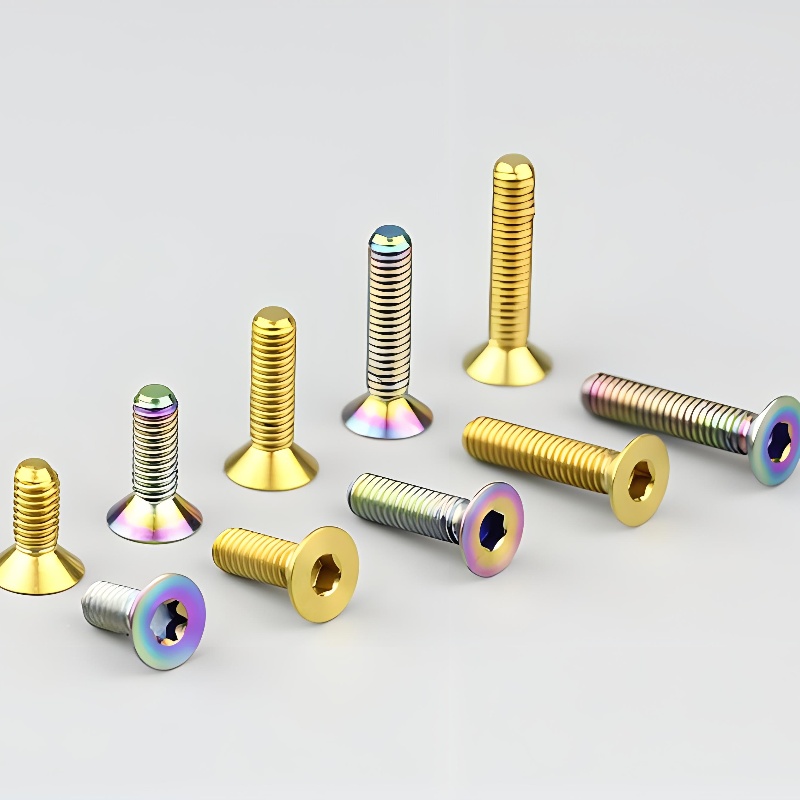
Titanium fasteners mainly use three types of materials:
The first type is low Mo equivalent α-β two-phase alloys, such as Ti-6Al-4V;
The second category is the metastable β alloy, there is the United States βIII, Ti-44.5Nb;
The third class is the subcritical composition of α-β type two-phase alloys, such as Russia's BT16l.
The most important material for titanium fasteners is TC4. TC4 (Ti-6A1-4V) is a medium strength α-β type two-phase titanium alloy, with excellent comprehensive properties, semi-finished specifications are complete, including bars, forgings, thick plates, sheets, profiles and wire. The alloy can work for a long time at a temperature of 400 ° C, and has obtained the most extensive application in the aviation and aerospace industry.
